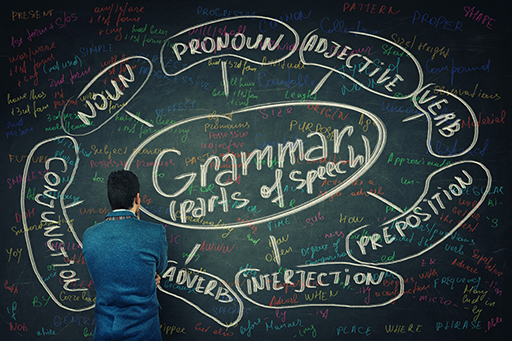1 Different kinds of words
We can all talk, write or sign in our own language without having to think very much about what words we use or the order we put them in. When we want to talk about the language we use and how it works, however, we might find it more challenging – it’s a bit like the difference between driving a car, and explaining how its engine works.
One thing you’ll need as you learn to talk about language is a set of terms to identify and label different kinds of words. You’ll also need a way to sort words into groups that do the same sort of thing. This is the first step to explaining the grammar of a language. Names for sets of words are part of everyday language: ‘days of the week’, ‘months’, ‘numbers’, ‘colours’ and so on. The set you’ll be learning are the ‘parts of speech’. Some of the terms in this set may be familiar to you from school or from learning another language, or they may be mostly new. What you’ll already know depends on when and where you went to school, as fashions in education change. What is important to remember is that even if the terms are new, you have been using the words they refer to all your life, without thinking about it too much.
To illustrate the knowledge you’ve already got, you’ll take a look at how different types of words can be grouped together.
Activity 1 Different types of words at work
Read the dialogue below then sort the bold words into the categories given in the table. Are they:
- a ‘naming word’ (for a thing or person)
- a ‘doing word’ (something that happened or that someone did or is doing)
- a ‘describing word’ (saying what something or someone is like)?
Add the words to the relevant columns in the table.
A. I brought a present for Amanda.
B. Can you afford it?
A. Oh, it wasn’t expensive. I bought it with some of the money I saved last year.
B. It’s beautiful! She’ll love it!
| Naming words | Doing words | Describing words |
Comment
| Naming words | Doing words | Describing words |
present Amanda money |
brought afford bought saved love
|
expensive beautiful |
This exercise is the first stage in sorting out the main classes of words which work together when we’re using English in our everyday lives. These three classes will be the focus of Weeks 2–5 of the course. If you’re still a little unsure of which word goes where, don’t worry – things should become clear over the next few weeks.

